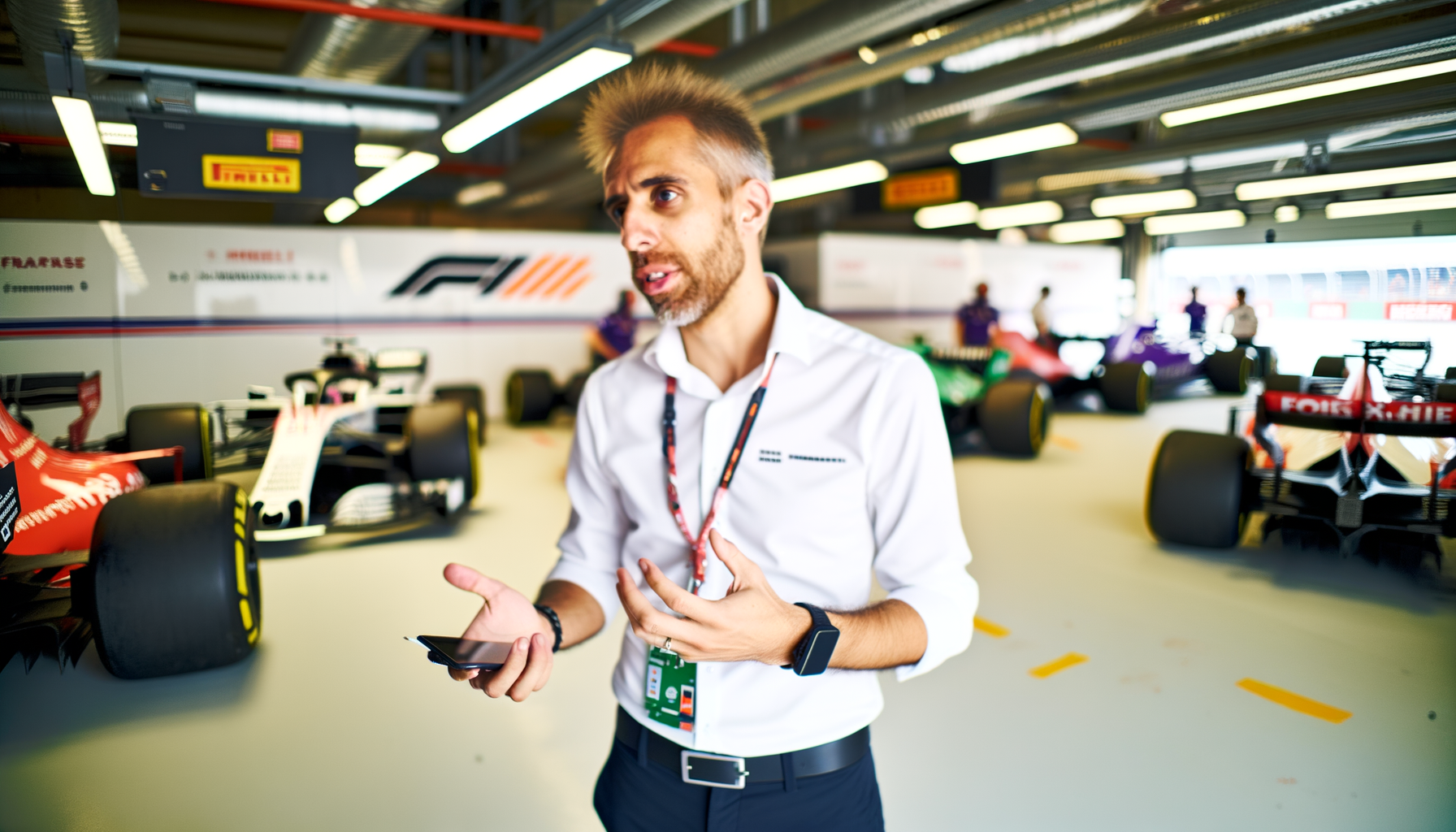James Vowles Proposes Two-Day F1 Race Weekend To Boost Calendar
James Vowles suggests a two-day Formula 1 race weekend to increase rounds and improve fan experience. Discover how this could reshape the F1 calendar.

By Editorial
Introduction To James Vowles' Proposal For F1 Race Weekends
James Vowles, the renowned Formula 1 strategist and Mercedes-AMG Petronas Motorsport's team principal, has recently proposed a radical shift in the structure of F1 race weekends. His suggestion? Compressing the traditional three-day weekend into a two-day format. This change aims to accommodate more rounds in the F1 calendar without overburdening teams and fans alike.
The idea has sparked widespread discussion within the motorsport community, as it could fundamentally change how fans engage with the sport and how teams prepare for race weekends. But what exactly does this proposal entail, and what are its potential benefits and challenges?
Why A Two-Day Race Weekend Could Work For Formula 1
Currently, most Formula 1 race weekends span three days: Friday practice sessions, Saturday qualifying, and Sunday race day. Vowles suggests eliminating one of the practice days to create a more compact schedule. This approach could:
- Allow More Races: With fewer days per event, the calendar could accommodate additional rounds, potentially pushing the season beyond the current 23 races.
- Reduce Costs: Shorter weekends mean less time spent at circuits, which could lower logistical and operational costs for teams and organisers.
- Enhance Fan Engagement: A condensed schedule might keep fans more engaged with a faster-paced event, avoiding the downtime some experience on practice days.
This proposal aligns with F1's recent efforts to expand globally while managing the intense demands on teams and drivers.
Challenges And Considerations For Implementing Two-Day Weekends
Despite the potential upsides, transitioning to two-day race weekends is not without obstacles:
- Reduced Practice Time: Teams rely heavily on Friday sessions to fine-tune setups and test tyre strategies. Cutting this day could impact performance and safety.
- Broadcasting Adjustments: Broadcasters would need to adapt their schedules and content to fit a shorter weekend, which could affect advertising revenues.
- Fan Experience At The Circuit: Many fans value the full weekend experience, including support races and fan zones that typically run on Fridays.
Overcoming these hurdles would require careful planning and stakeholder consultation, but Vowles emphasises that innovation is key to keeping F1 sustainable and exciting.
How Other Sports Are Managing Expanding Calendars
Formula 1 is not alone in facing the challenge of expanding calendars. Other sports have experimented with condensed schedules or format changes to accommodate more events without overwhelming participants or fans.
For example, the US Open Tennis Championship recently adjusted match scheduling to fit more high-stakes matches within a tighter timeframe, enhancing viewer anticipation and engagement.
Similarly, cricket leagues such as those detailed in the Comprehensive Guide To England Cricket Teams And Domestic Leagues have adopted innovative formats to balance player workload with fan demand.
Potential Impact On The F1 Calendar And Global Fan Base
Adopting two-day race weekends could enable Formula 1 to add several new venues, particularly in emerging markets eager to host Grand Prix events. This could stimulate growth in regions where F1 is gaining popularity, such as parts of Asia and the Middle East.
Moreover, a shorter weekend might appeal to younger fans accustomed to fast-paced content, aligning with F1’s digital expansion initiatives. However, traditionalists may worry about losing the ritualistic nature of the three-day weekend.
Balancing these perspectives will be crucial for Formula 1's management as they consider the future calendar. Innovations like sprint races have already shown how alternative formats can coexist with classic race weekends.
Conclusion: Is A Two-Day Weekend The Future Of Formula 1?
James Vowles' call for a two-day race weekend is an intriguing proposition that addresses many current challenges in Formula 1. By potentially increasing the number of races, reducing costs, and enhancing fan engagement, this idea could reshape the sport’s future.
However, it requires careful consideration of the impact on teams, drivers, broadcasters, and fans. As Formula 1 continues to grow globally, embracing innovative solutions like this might be essential to maintaining its position as the pinnacle of motorsport.
For those interested in the evolving landscape of sports and major events, consider exploring our detailed coverage on top sports in the UK and how traditions adapt to modern demands.
Related topics
Editorial
Sports expert at SportsScoop
Specialist in sports analysis and journalism
Related articles
Want to read more?
Explore our comprehensive collection of sports articles and analysis, or contact us for more information.



